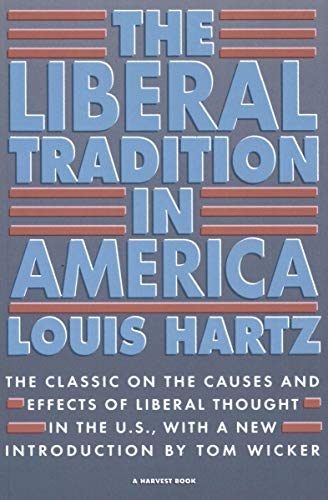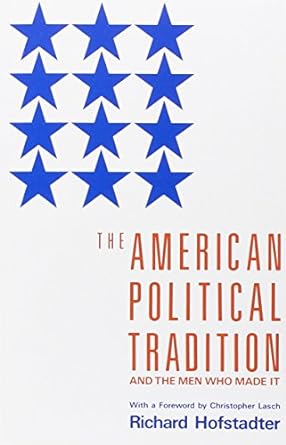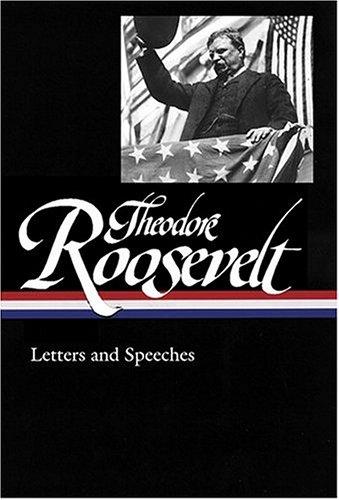Socialism: An American Political Tradition
Before I came to The New York Society Library, I earned a master’s degree at the University of Chicago. My research focus was, broadly speaking, on the American Political Tradition, but more specifically on early 20th century labor leaders, and how their political thought fit into the American Political Tradition.
The subject of my thesis was a gentleman named Eugene Debs, possibly the closest a socialist has ever come to being President. Debs was born in Terre Haute, Indiana, in 1855, and eventually became the Socialist Party candidate for President five times. I have copied a small section of the introduction of my thesis here to set the stage.
“It is important to explore the ways in which Debs may possibly be closer to American tradition than he is often considered. In building the socialist movement in the United States Debs was building something almost wholly unseen in the tradition of American political thought, at the level which Debs was attempting to build it. How Debs saw his project fitting within American tradition, as well as how it may reject that tradition, is an important area of exploration.”
In this blog post, I present five books which helped me to craft my thesis and place Eugene Debs within the tapestry that makes up the American Political Tradition. —Aaron Wladis, Circulation Assistant/Page
 The first book is truly one of the finest I have read. The Bending Cross by Ray Ginger, a book which may have gotten him blacklisted during the Red Scare, was published in 1947 and is still considered the preeminent book about Eugene Debs. Ginger discusses a complicated figure with heart and a sincerity unusual in most historical writing. Ginger examines not only Debs’ political leanings and aspirations but also how his personal life affected his politics and vice versa. In my research, I have found it essential to consider the context of a situation. There is much more to a moment, or movement, than simply meets the eye. Ginger goes over all the context you could possibly want with a fine-tooth comb. But don’t assume he only discusses Debs’ good side. There are numerous moments in the book where Ginger critically outlines how Debs erred both in his political views as well as in his political maneuverings. Overall, Ginger’s book is a generous and kind, but not overly attached, look at an overlooked political figure who brought vast swaths of this country together through his words and deeds.
The first book is truly one of the finest I have read. The Bending Cross by Ray Ginger, a book which may have gotten him blacklisted during the Red Scare, was published in 1947 and is still considered the preeminent book about Eugene Debs. Ginger discusses a complicated figure with heart and a sincerity unusual in most historical writing. Ginger examines not only Debs’ political leanings and aspirations but also how his personal life affected his politics and vice versa. In my research, I have found it essential to consider the context of a situation. There is much more to a moment, or movement, than simply meets the eye. Ginger goes over all the context you could possibly want with a fine-tooth comb. But don’t assume he only discusses Debs’ good side. There are numerous moments in the book where Ginger critically outlines how Debs erred both in his political views as well as in his political maneuverings. Overall, Ginger’s book is a generous and kind, but not overly attached, look at an overlooked political figure who brought vast swaths of this country together through his words and deeds.
Louis Hartz, a prominent American historian at Harvard for decades, wrote a sweeping political history of the United States in 1955 titled The Liberal Tradition in America: An Interpretation of American Political Thought Since the Revolution. While you can certainly argue with the overall thesis of the book–that America is an eminently liberal place and this also makes us exceptional–Hartz nicely traces the development of political thought throughout US history. As with any book that contends to make sweeping pronouncements about history and theory, it is best to read this book with some others for more context. However, Louis Hartz does a wonderful job discussing different theoretical points in American history. And his book is carefully laid out into well-defined sections,allowing readers to pick and choose what segments of American political thought they are interested in. I personally kept most of my close reading to the sections on socialism, but the whole book is full of interesting insights into what a prominent American historian believes built the political theory that undergirds the United States.
eminently liberal place and this also makes us exceptional–Hartz nicely traces the development of political thought throughout US history. As with any book that contends to make sweeping pronouncements about history and theory, it is best to read this book with some others for more context. However, Louis Hartz does a wonderful job discussing different theoretical points in American history. And his book is carefully laid out into well-defined sections,allowing readers to pick and choose what segments of American political thought they are interested in. I personally kept most of my close reading to the sections on socialism, but the whole book is full of interesting insights into what a prominent American historian believes built the political theory that undergirds the United States.
Richard Hofstadter, the preeminent American historian who wrote the famous essay The Paranoid Style in American Politics was no stranger to close analysis of the American political tradition. In The American Political Tradition: And the Men Who Made It, Hofstadter uses the effective tactic of discussing different political eras through certain people or groups. These people include former presidents such as Theodore Roosevelt and Woodrow Wilson, but also others that embody an era or set of beliefs according to Hofstadter, such as William Jennings Bryan and Wendell Phillips. For a thesis such as mine–attempting to compare Debs to different politicians of his time and the political tradition at large–this was very helpful. I also found it an interesting way to delve into various eras of history. Why a politician became popular, and often how they lost that popularity, is an important part of American political history. Looking at these moments through the lens of a certain figure, or a group of figures, can be illuminating. Reading about how abstract ideas played out in practice can help elucidate important moments and ideas.
William Jennings Bryan and Wendell Phillips. For a thesis such as mine–attempting to compare Debs to different politicians of his time and the political tradition at large–this was very helpful. I also found it an interesting way to delve into various eras of history. Why a politician became popular, and often how they lost that popularity, is an important part of American political history. Looking at these moments through the lens of a certain figure, or a group of figures, can be illuminating. Reading about how abstract ideas played out in practice can help elucidate important moments and ideas.
While attempting to delve into the American political tradition, I thought it necessary to look towards eminent figures of Debs’ era and explore the tradition as it was presenting itself at the time. For example, Woodrow Wilson–a towering figure in early 20th century American political life. I think it is essential to read and investigate what important figures thought to understand not only their experiences, but also to place them within the context of the world around them. To do this, I utilized speeches and writings from Woodrow Wilson, many of which are collected into Woodrow Wilson: Essential Writings and Speeches of the Scholar-President. (available as an e-book;instructions on how to access this book via our website can be found here). While he may not mention Debs by name in the speeches listed in this book (as he did in other speeches), as a scholar and keen observer, Wilson wrote about socialism and its place within the American political tradition. (For more—much more—of Wilson’s writings, ask to see the 32-volume Papers of Woodrow Wilson, in our Closed Stacks.)
Another towering figure of this era to contend with is Theodore Roosevelt. By the point in time covered in my thesis, Roosevelt is a third party candidate with the Bull Moose Party in the 1912 Presidential election, running against incumbent Republican President William Howard Taft, Woodrow Wilson, and Debs. Roosevelt is an interesting figure to explore in this context, a man who attempted to forge his own path and who formed numerous interlocking opinions that truly separated him from other candidates in the election. Many of his ideas, theories, or just general views of the world can be found in a Library of America published book titled Theodore Roosevelt: Letters and Speeches. Roosevelt wrote and spoke on all manner of topics, and had a wide range of opinions about all of them. From more progressive elements such as his thoughts on nature and aspects of industry, to more conservative elements such as his support of business and his disparaging of a Eugene Debs-led strike which he called the Debs riot. In fact, the section of Hofstadter’s aforementioned book discussing Roosevelt is titled “Theodore Roosevelt: The Conservative as Progressive.” This book presents a variety of different aspects of Roosevelt to explore, including some more personal letters, as well as speeches he gave to large crowds and small groups of supporters, too.
I hope this provides readers with a few entry points into a fascinating facet of American political thought and history. If you have any interest in my research or thesis please don’t hesitate to ask. I’m even happy to provide my thesis—if there is any interest of course!

